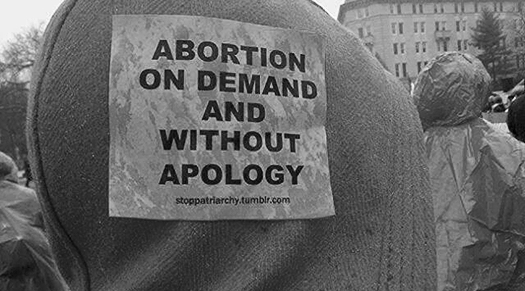
Photo Credits: Flickr
Despite what opponents of abortion believe, when it is legal, available and covered by health insurance — abortion rates go down. A new study published in The Lancet offers more evidence to that point by looking specifically at U.S. foreign policy regarding the issue, so called The Mexico City policy.
The Mexico City Policy, sometimes referred to by critics as the global gag rule, is a United States government policy that blocks U.S. federal funding for non-governmental organizations that provide abortion counseling or referrals, advocate to decriminalize abortion, or expand abortion services. The policy requires non-governmental organizations to "agree as a condition of their receipt of federal funds" that they would "neither perform nor actively promote abortion as a method of family planning in other nations." The policy has exceptions for abortions done in response to rape, incest, or life-threatening conditions.
After its initial enactment by President Reagan in 1984, the Mexico City Policy was rescinded by Democratic President Bill Clinton in January 1993. Then it was re-instituted in January 2001 as Republican President George W. Bush took office, just to be rescinded again on January 23, 2009 as Democratic President Barack Obama took office. The policy was again reinstated on January 23, 2017, as Republican President Donald Trump took office.
The study called “USA aid policy and induced abortion in sub-Saharan Africa: an analysis of the Mexico City Policy” explains that curbing US assistance to family planning organizations, especially those that consider abortion as a method of family planning, increases abortion prevalence in sub-Saharan African countries most affected by the policy.
In addition to finding that the ban produced a 40% increase in a country’s typical abortion rate during the period when the Mexico City policy was in place, the authors found a 14% decrease in the use of contraception and a 12% increase in pregnancies.
The authors conclude:
We have shown how a US policy that aims to restrict federal funding for abortion services can lead, unintentionally, to more — and potentially riskier — abortions in poorer countries. Regardless of one’s political preferences or beliefs about the ethics of abortion, these results represent undesirable and unintended (but reversible) consequences of the Mexico City Policy.
The conclusion clearly shows that if there’s an effective abortion ban in the country, more unwanted pregnancies will end with riskier abortions, more women will die and there won’t be more children. So, what is the purpose of anti-abortion policies if they only make things worse?
